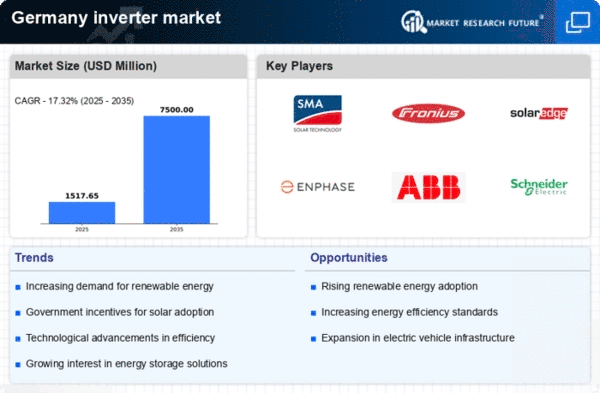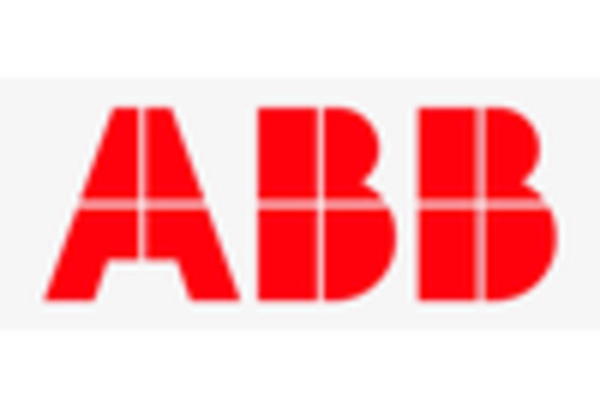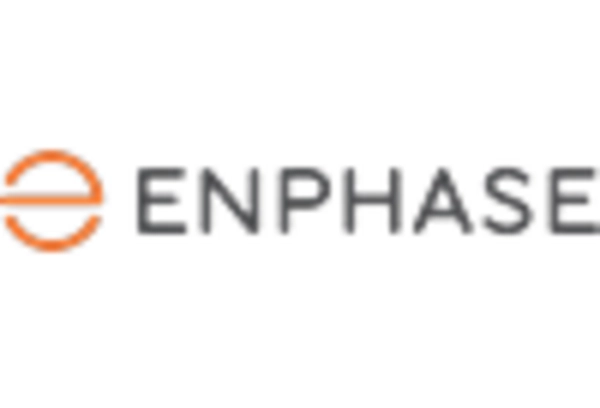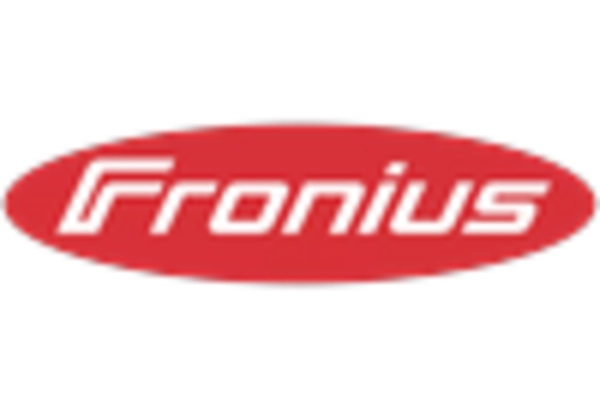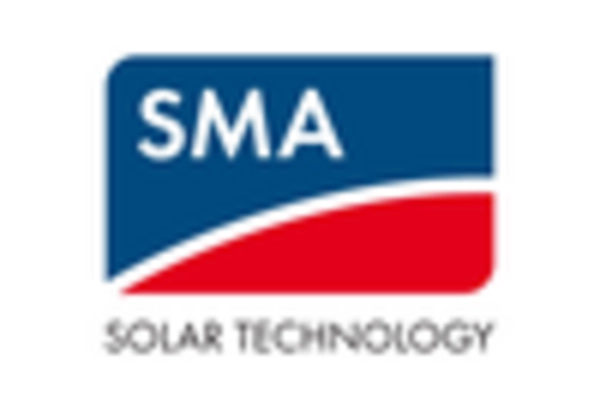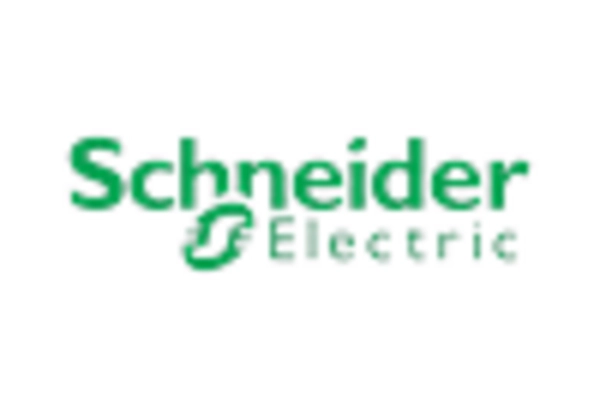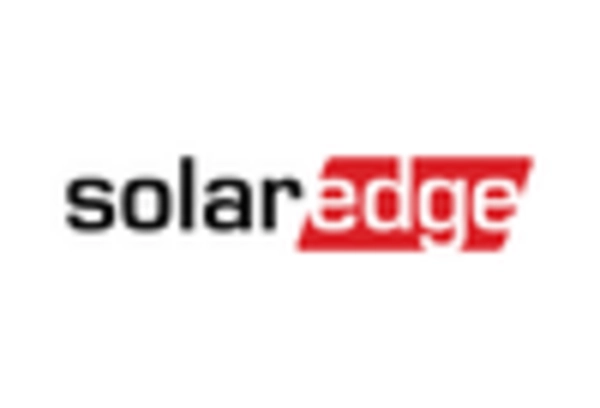Integration of Smart Technologies
The integration of smart technologies into the inverter market is transforming how energy is managed and consumed in Germany. Smart inverters, which can communicate with energy management systems and smart grids, are becoming increasingly prevalent. These devices not only optimize energy usage but also provide real-time data and analytics to users, enhancing their ability to monitor and control energy consumption. In 2025, it is projected that smart inverters will account for over 40% of the total inverter market, reflecting a significant shift towards intelligent energy solutions. This trend indicates a growing recognition of the importance of data-driven decision-making in energy management, which is likely to further propel the inverter market as consumers seek more efficient and responsive energy solutions.
Government Incentives and Subsidies
Government policies play a crucial role in shaping the inverter market in Germany. The introduction of various incentives and subsidies for renewable energy installations has stimulated market growth. For example, the German government offers financial support for solar PV systems, which often includes funding for inverter purchases. In 2025, it is estimated that around 30% of new solar installations received some form of government assistance, directly impacting the inverter market. These incentives not only lower the initial investment barrier for consumers but also encourage the adoption of advanced inverter technologies. As the government continues to promote renewable energy, the inverter market is likely to see sustained growth driven by favorable policy frameworks.
Increasing Demand for Renewable Energy
The inverter market in Germany is experiencing a notable surge in demand driven by the increasing adoption of renewable energy sources. As the country aims to transition towards a more sustainable energy system, the integration of solar and wind energy has become paramount. In 2025, renewable energy accounted for approximately 50% of Germany's total electricity generation, highlighting the critical role of inverters in converting and managing this energy. The inverter market is thus positioned to benefit from this trend, as efficient energy conversion is essential for maximizing the output from renewable sources. Furthermore, the German government has set ambitious targets for reducing greenhouse gas emissions, which further propels the need for advanced inverter technologies that can support the growing renewable energy infrastructure.
Rising Energy Costs and Consumer Awareness
The increasing cost of traditional energy sources is prompting consumers in Germany to seek alternative solutions, thereby driving the inverter market. As energy prices rise, households and businesses are becoming more aware of the benefits of investing in renewable energy systems, including solar panels and their associated inverters. This shift in consumer behavior is evident, as many are now prioritizing energy independence and sustainability. In 2025, surveys indicate that over 60% of German consumers are considering solar energy solutions, which directly correlates with the demand for inverters. This growing awareness and willingness to invest in renewable technologies suggest a robust future for the inverter market, as more individuals and organizations look to mitigate their energy costs through sustainable practices.
Technological Advancements in Inverter Design
Technological innovations are significantly influencing the inverter market in Germany. The development of more efficient and compact inverter designs is enabling better performance and reliability. For instance, the introduction of multi-level inverters and transformerless designs has improved efficiency ratings, often exceeding 98%. These advancements not only enhance energy conversion but also reduce installation and maintenance costs, making them more appealing to consumers. As the inverter market continues to evolve, manufacturers are likely to invest in research and development to create smarter, more integrated solutions that can cater to the diverse needs of the energy sector. This trend indicates a shift towards more sophisticated inverter technologies that can seamlessly integrate with smart grids and energy management systems.


